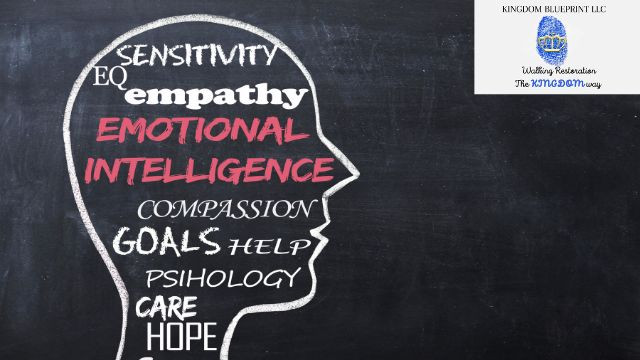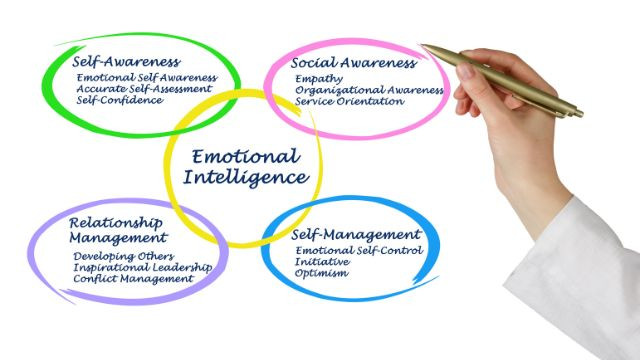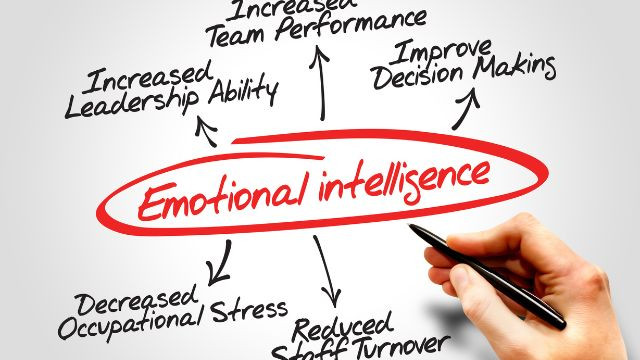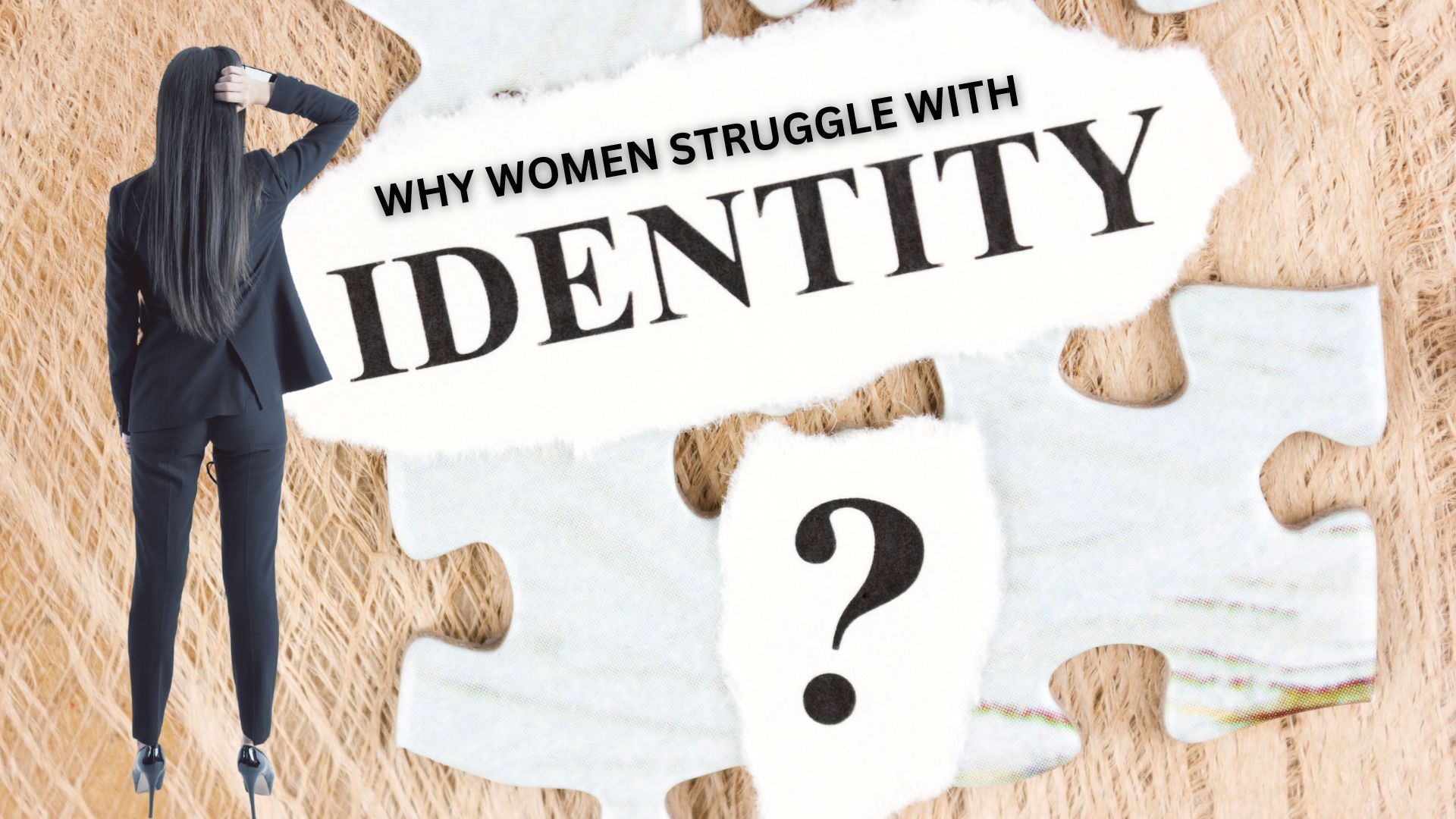Unlock Your Potential with Emotional Intelligence | Kingdom Blueprint
Jun 23, 2023
What Is Empathy And How Does It Work With High Emotional Intelligence | Kingdom Blueprint
 Grow In Emotional Intelligence Here
Grow In Emotional Intelligence Here
Introduction
Emotional Intelligence (EI) is a concept that has become increasingly popular over the last few decades. It is defined as the ability to recognize, understand, and manage one's own emotions, as well as the emotions of others. It involves being self-aware and having the ability to identify and understand one's own emotions, as well as the emotions of those around them. It also involves the ability to manage one's own emotions in order to achieve desired outcomes in personal and professional life.
EI includes empathy, which is the ability to both understand emotions, and share the feelings of another person, and emotional quotient, which is the ability to use and manage one's own emotions in order to make decisions and solve problems.
EI is an important skill to have, as it can help individuals better understand their own emotions and the emotions of others, as well as manage their own emotions in order to achieve desired outcomes. Additionally, it can help individuals develop better interpersonal skills, emotional awareness, and the ability to manage challenging relationships. Higher EI is linked to higher job performance, better mental health, and improved personal life.
What is Emotional Intelligence (EI)?
Emotional Intelligence (EI) is a concept that has been around for decades but has only recently been given the attention it deserves. Defined as the ability to recognize, understand, and manage one's own emotions, as well as those of others, EI is a crucial skill for success in both personal and professional relationships. It is closely related to empathy, which is the ability to understand and share the feelings of another. Those with high emotional intelligence are often better able to manage their own emotions, as well as those of others, and are better equipped to handle challenging relationships.
They are also better able to understand and manage their own feelings, as well as those of others, and are better able to recognize the impact of their own behaviors on their mental health and job performance. With higher emotional and cognitive intelligence also comes greater self-awareness, a better understanding of people's emotions, and an improved ability to manage stress.
Overall, emotional intelligence is an important part of our emotional abilities and competencies and is a key factor in understanding and managing our own emotions as well as those of others.
Defining Emotional Intelligence and its Components
 Develop Your Relationships With Emotional Intelligence
Develop Your Relationships With Emotional Intelligence
Emotional intelligence is defined as the ability to identify, understand, and manage one’s own emotions, as well as the emotions of others. It is an important component of mental health, as it allows us to better understand our own emotions, as well as the emotions of those around us.
Emotional intelligence is often referred to as EQ, or emotional quotient, and is composed of several components, key elements such as self-awareness, self-regulation, motivation, empathy, relationship management, and social skills.
Self-awareness is the ability to recognize and understand one’s own emotions, and how they influence our own behaviors and decisions. Self-regulation is the ability to manage our own emotions in order to reach our goals. Motivation is the ability to stay motivated and focused on our goals.
Empathy is the ability to understand and relate to the emotions of others. And finally, social skills are the ability to build and maintain relationships with others. Having higher emotional intelligence can help us better understand our own emotions, as well as the emotions of those around us, allowing us to better manage challenging relationships in our personal and professional lives.
What is Empathy and How Does it Relate to EI?
 Learn How To Have Healthy Boundaries Here
Learn How To Have Healthy Boundaries Here
When it comes to understanding emotions, empathy is a key concept. Empathy is the ability to understand and share the feelings of another person. It is an important part of emotional intelligence, which is the ability to recognize, understand, and manage emotions in ourselves and others.
Emotional intelligence is defined as the ability to identify, assess, and control one's own emotions, and the emotions of others, and the ability to use these emotional states and information to guide thinking and behavior. This includes understanding our own emotions, being able to recognize and understand the emotions of others, and having the ability to manage our own emotions and those of others.
Empathy is an important part of emotional intelligence, as it allows us to better understand and relate to the emotions of others
It is a crucial skill for both managing emotions in challenging relationships and improving job performance. Those with higher emotional intelligence tend to have better mental health and are better able to manage their own emotions and those of others.
Empathy is also important in terms of self-awareness, as it helps us to understand our own feelings and behaviors and how they may be influencing others. By understanding empathy and its role in emotional intelligence, we can gain a better understanding of our own emotions and those of others, leading to improved personal life and better job performance.
The Benefits of Having High Emotional Intelligence
Build Healthy Relationships Here
Having high emotional intelligence (EI) is a powerful tool that can help you succeed in many aspects of life. EI is the ability to recognize, understand, and manage your own emotions, as well as those of others. It is the capacity to perceive, express, and interpret emotions, as well as to use emotions to facilitate thinking and understanding.
It is also the ability to understand the emotional needs of others and respond to them in a compassionate way. With a higher emotional intelligence, you can better communicate effectively manage your own emotions, build relationships, and create a more positive, productive environment.
What makes a person emotionally intelligent
It is the ability to be self-aware, to understand and manage one’s own emotions, and to be able to empathize with others. It is also the ability to understand the emotional needs of others and respond to them in a compassionate way. It is important to note that emotional intelligence is not the same as technical skills or IQ.
It is a set of skills that can be developed and improved through emotional intelligence training. With a higher emotional and social intelligence, you can better manage your own emotions, build relationships, and create a better understanding of yourself and others. This can lead to improved mental and physical health, better job performance, and a better ability to manage challenging relationships in your personal life.
Signs of Lacking Empathy and How to Remedy It
Emotional intelligence (EI) is a term that is often used to further define emotional intelligence, the ability to understand and manage one's own emotions, as well as the emotions of those around them. It is also known as the emotional quotient (EQ) and is often used to measure a person's ability to be aware of, control, and express their own emotions, as well as a person's ability to empathize and connect with others.
In order to be emotionally intelligent, individuals must have the ability to recognize their own emotions, be aware of how those emotions are influencing their behavior and decisions, and be able to manage their own emotions.
Emotionally intelligent people work hard on learning to manage emotions and do not ignore nonverbal communication because that displays a lack of social skills. As effective leaders, they work on essential tools and pay attention to a person's abilities. These are EI skills that directly work with the well-being of others.
They watch facial expressions and are quick at problem-solving in healthy ways
They rarely ignore someone with different feelings or that may feel overwhelmed by emotional information so these direct reports of stronger relationships show people using EI skills and empathy. Women tend to show more than men the need for empathy.
There are five key elements to EI: self-awareness, self-regulation, motivation, empathy, and social skills. People with high EI can identify how they are feeling, what those feelings mean, and how those emotions impact their behavior and in turn, other people.
Signs of lacking empathy include difficulty understanding and responding to the emotions of others, difficulty managing stress and emotions, and difficulty forming meaningful relationships with others. People who lack empathy may also have difficulty understanding their own emotions, be unaware of how their emotions are influencing their behavior, and have difficulty managing their own emotions.
In order to remedy this, it is important to focus on developing a better understanding of the significant relationship between one's own emotions and the emotions of those around them. This can be done through emotional intelligence training, which can help individuals learn how to recognize and manage their own emotions, as well as understand and connect with the emotions of others.
How to Develop High EI
 Emotional intelligence (EI) is an important concept that has been widely studied in the fields of psychology and management. It is the ability to perceive, understand, and manage one's own emotions as well as those of others. It is a crucial skill that can help us to better understand our own emotions, as well as those of others, and to manage them in a healthy and productive way.
Emotional intelligence (EI) is an important concept that has been widely studied in the fields of psychology and management. It is the ability to perceive, understand, and manage one's own emotions as well as those of others. It is a crucial skill that can help us to better understand our own emotions, as well as those of others, and to manage them in a healthy and productive way.
Emotional intelligence can be defined by a variety of factors, such as self-awareness, self-report, and emotional intelligence tests, emotional perception, emotional understanding, and the ability to manage one's own emotions. It is also important to understand the role that empathy plays in developing higher emotional intelligence.
The most common types are Self-report test: Which relies on the respondent's answers or statements to rate their own behaviors. Ability test: Respondents perform tests to assess their abilities to perceive, identify, understand, and manage situations.
Empathy is the ability to understand and share the feelings of another person. It is an important part of emotional intelligence as it allows us to better understand and relate to others. Having a higher level of empathy can help us to better understand our own emotions, as well as those of others, and to manage them in a healthy and productive way.
By developing a better understanding of our own emotions and those of others, we are better able to manage our own feelings and emotions, as well as those of others. This can help us to better navigate challenging relationships, improve job performance, and even improve our overall mental health.
How Self-Awareness Through EI Impacts Mental Health, Relationships, and Job Performance
Emotional intelligence (EI) is a set of skills and abilities that enable us to identify and manage our own emotions and the emotions of others. It is the ability to recognize, understand, and manage our own emotions as well as the emotions of those around us. It is the capacity to use our emotions in a constructive way to achieve our goals and to develop and maintain relationships.
EI includes the ability to be self-aware, to recognize and understand our own emotions, to manage our own emotions, and to be empathetic and understanding of the emotions of others. It also involves having the ability to recognize how our emotions influence our own behaviors and the behaviors of those around us.
EI is a crucial skill that can have a positive impact on our mental health, relationships, and job performance
It can help us better understand our own emotions and the emotions of those around us, enabling us to build better relationships and manage challenging relationships. It can also help us better understand our own feelings and reactions to difficult conversations, enabling us to better manage stress and make better decisions.
Furthermore, higher emotional intelligence can lead to improved job performance and better management of difficult situations. and EI skills can be developed through self-awareness, self-report, and emotional competencies. With the right emotional intelligence training, we can learn to recognize, understand, and manage our own emotions, as well as the emotions of those around us, leading to improved mental health, a better understanding of relationships, and improved job performance.
Learn To have self-awareness and regulate your own emotions
In conclusion, emotional intelligence (EI) is a crucial skill for personal success in life, work, and relationships. It is the ability to recognize, understand, and manage one’s own emotions, as well as the emotions of others. Emotional intelligence is defined as the capacity to be aware of, control, and express one’s emotions, and to handle interpersonal relationships judiciously and empathetically.
It involves understanding one’s own emotions and those of others and using this knowledge to inform decisions and actions. It also involves the ability to manage stress, build and manage relationships well, and empathize with others. High levels of emotional intelligence can lead to better job performance, higher self-esteem, and more successful relationships.
Furthermore, emotionally intelligent person is better able to understand their own feelings and the feelings of those around them, leading to better self-awareness, self-confidence, and a better understanding of challenging relationships.
We define Emotional Intelligence (or EI) as the ability to
Practically, this includes learning how to control the emotion that drives our behavior. It is crucial to manage emotional states when there is pressure. In our own case.
Obviously, not everyone has the smartest life. You likely know people who are academically superb, but socially ineffective and fail at work and relationships. Intellectual ability cannot be achieved by itself. Yes, you're capable of making a great college IQ and your Emotion is the best tool for reducing anxiety during exams and overcoming any fear. It is essentially a combination of IQ and EQ that work best if they work together as well.
Mindfulness is an ally of emotional and social awareness
In order to develop social awareness you have to acknowledge that mindfulness is essential to social interaction. You don't get a sense for subtle nonverbal signals if you are in my mind. Social consciousness needs a present. Although people like to be able to multitask, this can mean you're losing subtle empathetic changes that can be easily understood.
Developing emotional awareness
It is important to learn how to deal with anxiety to make sure you are more comfortable feeling uncomfortable or re-energized in your life. You can improve emotional intelligence through the free Emotional Intelligence Toolkit.
What is emotional intelligence?
Emotional intelligence is a crucial set of skills that can help us understand ourselves and others better. It involves our ability to identify, understand, and manage our own emotions, as well as crucial skills such as recognizing and understanding the emotions of others. This can help us to better manage our own mental health, form more meaningful relationships, and even improve our job performance.
Developing high emotional intelligence requires self-awareness, empathy, and the ability to manage our own emotions. By understanding and developing these skills, we can better navigate all aspects of our personal life, from challenging relationships to our own self-awareness. With a better understanding of our emotions, we can become more emotionally intelligent and have a greater impact on our lives.
Frequently Asked Questions
Q1: What is Emotional Intelligence (EI)?
A1: Emotional Intelligence (EI) is the ability to recognize, understand, and manage one's own emotions, as well as the emotions of others. It is a crucial skill that helps people to better understand their own feelings, as well as those of others, to resolve conflicts, and enables them to effectively manage challenging relationships and situations. EI is made up of several components, including self-awareness, self-regulation, empathy, and social awareness.
Q2: What is the Definition of Emotional Intelligence and its Components?
A2: Emotional Intelligence (EI) is the ability to recognize, understand, and manage one's own emotions, as well as the emotions of others. It is made up of several components, including self-awareness, self-management, emotional intelligence helps self-regulation, empathy, and social awareness. Self-awareness is the ability to recognize and understand one's own emotions, while self-regulation is the ability to manage one's own emotions. Empathy is the ability to understand and share the feelings of others, while social awareness is the ability to recognize and understand the emotions of those around us.
Q3: What is Empathy and How Does it Relate to EI?
A3: Empathy is the ability to understand and share the feelings of others. It is a key component of emotional intelligence, as it enables us to better understand the emotions of those around us and to respond to human emotions in a more appropriate and helpful manner. Empathy is also important for developing and maintaining strong relationships, as it allows us to better understand people's feelings, and connect with the people in our lives.
Q4: What are the Benefits of Having High Emotional Intelligence?
A4: Having high emotional intelligence can have numerous benefits, including improved mental health, better relationships, and increased job performance. People with high emotional intelligence are as well being better able to recognize and manage their own emotions, as well as those of others. This can lead to increased self-awareness, improved interpersonal skills, and better decision-making. Additionally, researchers suggest that those with high emotional intelligence are better able to manage challenging relationships and stressful situations.
Q5: What are the Signs of Lacking Empathy and How Can It Be Remedied?
A5: Signs of lacking empathy can include difficulty understanding and responding appropriately to the emotions of others, as well as difficulty communicating effectively and connecting with other people's feelings on an emotional level.
Set-Up A Free Consultation Here Stay connected with news and updates!
Join our mailing list to receive the latest news and updates from our team.
Don't worry, your information will not be shared.
We hate SPAM. We will never sell your information, for any reason.













